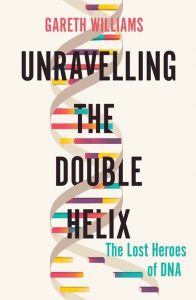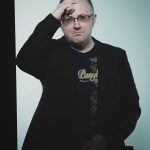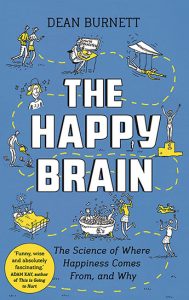We ask for a £5 donation (at the door) that doubles as a raffle ticket to win a book prize to cover speaker expenses and the cost of the venue.
 In Hampshire 546,267 people voted to leave the EU in June 2016, some 54.0% of all those who voted in the county. Hampshire was never singled out as a hotbed of leave voters and yet the people of this county, along with just a few of the other English Home Counties, were crucial to securing the referendum result. So why was this not commented upon at the time, or later – and what might it mean for how little we understand ourselves?
In Hampshire 546,267 people voted to leave the EU in June 2016, some 54.0% of all those who voted in the county. Hampshire was never singled out as a hotbed of leave voters and yet the people of this county, along with just a few of the other English Home Counties, were crucial to securing the referendum result. So why was this not commented upon at the time, or later – and what might it mean for how little we understand ourselves?
We can define an ‘Anti-Hampshire’ which has almost exactly the same electorate as Hampshire but is made of five northern and one Welsh district often labelled as hot-beds of leavers. In Anti-Hampshire only 494,816 voted to leave, 53.7% of all those who voted. Anti-Hampshire consists of Blackpool, Derby, Great Yarmouth, Leeds, Merthyr Tydfil and Sheffield (the fifth largest city in Britain).
Its time for a few home truths about the geography of who we are, how we got here, and where we are most probably going.
The table below is numbers voting leave and the % of all who voted in “Anti-Hampshire”
| Blackpool | 45,146 | 67% |
| Derby | 69,043 | 57% |
| Great Yarmouth | 35,844 | 72% |
| Leeds | 192,474 | 50% |
| Merthyr Tydfil | 16,291 | 56% |
| Sheffield | 136,018 | 51% |
Don’t worry – the talk still works even if Theresa May cancels article 50 (she can do it without anyone’s permission) – or even if we get a peoples’ vote and that is for Remain.
Personally I think her plan is to cancel it at the point that we begin to get a great deal of panic. Panic is rising.
I have a book coming out in January with my friend Sally where we claim that the effect of Brexit will still be enormous even if we don’t leave:
I ought to admit to a vested interest of a new book! But I don’t need to try and sell any copies on the night!
Brief Bio
Danny Dorling is the Halford Mackinder Professor in Geography at the University of Oxford. He was previously a professor of Geography at the University of Sheffield, and before then a professor at the University of Leeds. He earlier worked at academic posts in Newcastle, Bristol, and New Zealand. He went to university in Newcastle upon Tyne, and to school in Oxford. He was born in 1968.
Much of Danny’s work is available open access (see www.dannydorling.org). With a group of colleagues he helped create the website www.worldmapper.org which shows who has most and least in the world. His work concerns issues of housing, health, employment, education, wealth and poverty. His most recent book, with Sally Tomlinson, was published on January 15th 2019: ‘Rule Britannia: Brexit and the end of Empire’ concerning what the 2016 EU referendum and 2019 ‘exit’ told us about the British.
[It was ‘completely spot on’ / ‘shown to be rubbish given subsequent events (delete as appropriate J )]
He is a patron of the charity Roadpeace, an Honorary Patron of Heeley City Farm, Sheffield, and a Senior Associate member of the Royal Society of Medicine. He is now working on ‘Slowdown’ during 2019. His next book, about slowing down…




 You barely go a week without some puff piece article offering the ‘secret’ of happiness, or 5 easy steps to make yourself happy. They usually mention
You barely go a week without some puff piece article offering the ‘secret’ of happiness, or 5 easy steps to make yourself happy. They usually mention 

 Roll up! Roll up! Roll up! Gather ye round the travelling caravan, as Snake Oil Salesman Ash Pryce demonstrates the miraculous curative abilities of psychic surgery taught him by a wise man in the Philippines (or a magicians’ tool book, whichever sounds more wondrous).
Roll up! Roll up! Roll up! Gather ye round the travelling caravan, as Snake Oil Salesman Ash Pryce demonstrates the miraculous curative abilities of psychic surgery taught him by a wise man in the Philippines (or a magicians’ tool book, whichever sounds more wondrous). Can you be brainwashed in 60 minutes?
Can you be brainwashed in 60 minutes?
 Gin, bunting and bloody railways: Why everything you thought you knew about the British Empire is Wrong.
Gin, bunting and bloody railways: Why everything you thought you knew about the British Empire is Wrong. Aliens among us
Aliens among us